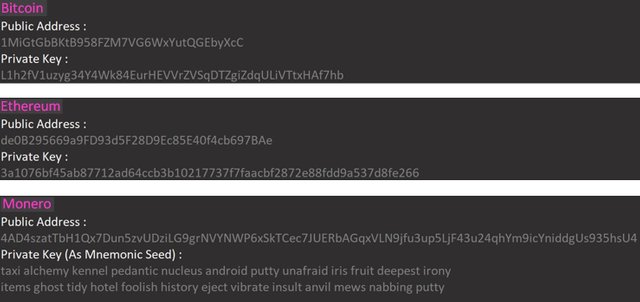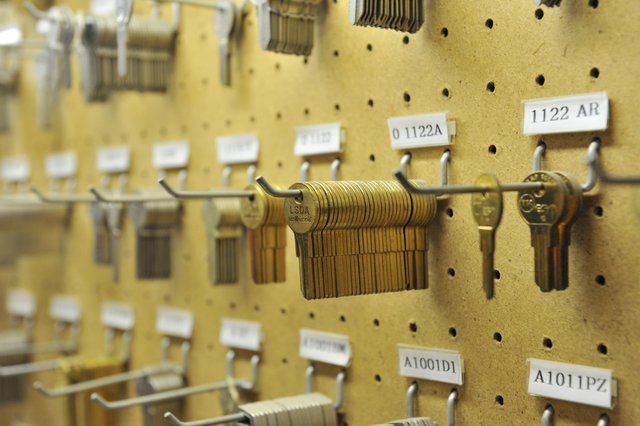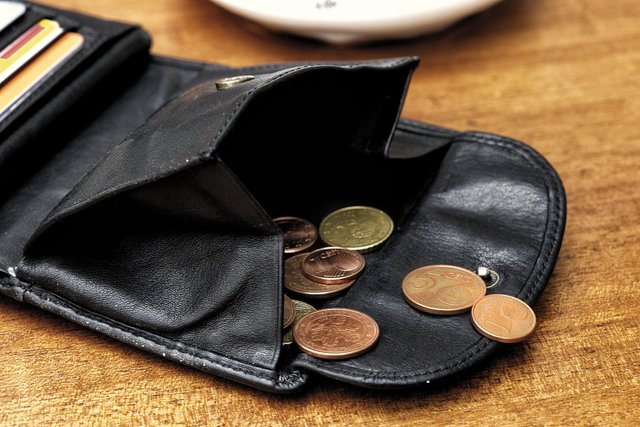Anyone’s Guide to Buying (and Hodling) Virtual Coins
I imagine most people reading this article consider themselves crypto-beginners.
Let me tell you a little secret, when it comes to virtual currency (v-coins) most of us are.
Satoshi Nakamoto may have given humanity Bitcoin nearly a decade ago, but 99.9% of people involved with v-coins today had not heard of them before 2017.
The Idea Behind All Coins & Wallets
As the name Bitcoin suggests, v-coins are just that, bits of information. Bits can be represented by numbers, or letters, or whatever else you’d like. Let’s call them phrases. Holding a v-coin means exactly one thing, Holding the private key phrase which allows coins to be spent from a given wallet.
Every private key is associated with a public address used to deposit and view funds on that wallet.
This is not dissimilar to holding regular money in a bank account. The public address is your account number, the private key represents the username and password you would use to withdraw funds.
This is how these phrases would look for some coins :
All software wallet clients give you the ability to hold a wallet, or address & key, for a certain v-coin, and most of them let you do much more. Basic wallets can create, verify, sign, and broadcast transactions(txs) to be confirmed (as a minimum).
Wallet clients usually use the private key transparently, and display the public address as a word or QR code. Many of them support change addresses, which means the wallet can switch addresses between txs to help protect your privacy. This can make the term wallet a bit confusing, when you mean address or key, say that.
Remember : The public address allows for coin to be deposited to that wallet. The private key is the only way to withdraw.
Wallets Come in Many Flavors
Investopedia’s definition of ‘Digital Wallet’ :
‘A digital wallet is a system that securely stores users' payment information and passwords for numerous payment methods and websites.’
Actually applies to Paper Wallets too :)
Paper Wallets :
Anecdotal and symbolic they are essentially a piece of paper (or anything else) with your keys written on them. Anecdotal because they are vulnerable to fire, humidity, termites, and that aunt that cleans when she comes over. Symbolic, because they demonstrate that ultimately, to own v-coins all you need is to know “The Magic Word”.
Software Wallets :
Naturally offer more functionality including -
- Wallet address & key generation (for the coins they support)
Tx creation, validation & verification - Signing txs (for which they have to use a private key)
- Broadcasting txs to the network to be written
- Some wallets support protocols that allow wallet recovery based on a seed phrase.
A seed might look something like this (12-24 words is common). :
birth art city bulb journey rapid select they maid river pulse coin cancel smoke ranch camera sadness apology hedgehog young toss lazy exhaust canyon
- The seed is associated with a particular protocol the wallet implements. If a wallet supports multiple addresses, of even multiple coins, your seed phrase is effectively a private key, allowing you to restore and access any coins stored on that wallet.
SW wallets are necessary in a basic sense because they provide a mechanism to manipulate and use addresses and txs. However, the problem with letting them hold your private keys is that SW wallets are only as secure as the machine they run on, and when it comes to large sums of money, no household laptop or everyday phone is secure enough.
Hardware Wallets :
The same as SW wallets, but come with a dedicated piece of HW for keeping your private keys out of reach, usually looks like a USB flash drive with a display and some buttons.
They are really the only way to go if you are serious about hodling your v-coins. They give you all the functionality of SW wallets right on your laptop, but they NEVER keep your private keys on the machine they are connected to.
Always make sure you buy your HW wallet directly from the manufacturer, and make sure it arrives in a sealed package!
Read up on how to set it up before you configure it for the first time.
Understanding Blockchain is not a requirement
As you may have heard, v-coins are created and maintained on a distributed, trustless, irreversible network often referred to as Blockchain. You may have also heard that v-coins are complicated. This is true.
In reality there are many different coins, with many different implementations, Blockchain being one, but there are also hash-graphs, and tangles, and stranger things. It would take a whole other article to explain a small portion of the technical details.
What I can do here is just mention some general, useful things to know about v-coins :
The Value of v-coins is set by demand only. There is usually no backing authority, and every exchange and every country set their own prices and regulations.
An entity that issues a new coin (ICO) decides everything about the coin, including the coin’s total supply, availability, and any mechanism by which the coin is generated or destroyed.
Coins can differ in network type, confirmation speeds, txs fees, financial backing, leadership, use cases, and more.
Whoever knows the private key associated with a wallet address effectively owns the coin in that address.
Exchanges : Not Your Keys, Not Your Coin.
HW wallets are the best place to hodl your coins, but there’s one hitch. If you want to trade your coins you’ll need to open an account on an exchange. Exchanges allow you to hold multiple currencies easily, and they’re where you can trade between different v-coins.
Once you sign up for an exchange (I recommend Binance, compare exchanges here.) you can send your coin to a wallet address on the exchange that has been assigned to your account.
If you don’t have your own wallet, you’ll need to buy v-coin with $$$ and deposit it directly to your exchange account.
If you plan to sell regular money for coin make sure your elected exchange accepts regular currency. (Coinbase, cex.io, Kraken & Bitstamp are a few that do).
Consult an accountant (or the internet), to check how tax authorities & banks in your region treat v-coins. This is a very local issue right now. As an example, banks in Australia have split opinions.
Don’t forget to use 2FA on all your exchange accounts for account security.
Naturally when your coins are on an exchange they are held in the exchange’s wallets, who hold their keys and use them to write txs to the blockchain.
There is no way to validate which txs are actually written to a coin’s network and when. In the case of slower coins like Bitcoin (10 mins per block for now), the exchanges cannot even be expected to trade continuously and verify every tx on the blockchain itself, it’s either or.
Since the actual coin is held in the exchange’s wallets it is as secure and as available as that exchange’s security allows. This is a scenario similar to having a bank or brokerage account, you have to trust the firm handling your money, for better, or worse.
V-Coins are Risky :
Transferring coins to the wrong address, or trusting the wrong people’s ICO, are all ways crypto-investors lose money.
So Always :
- Be vigilant
- Take addresses & keys seriously
- Use your common sense
- Be aware that v-coins come with perils unknown elsewhere
What about mobile and desktop wallets?
Electrum is great for Bitcoin, and is open source (about the security advantages of open source SW).
I hear Mycelium is good (not open source) , and that Delta lets you track your portfolio. There are lots of SW wallets out there, and they are useful on the go for small txs, and the odd bit of exotic trading. They all have one thing in common : They’re not secure enough to hold large sums of money, period.
The Bottom Line
Your best bet, if you want to become a proud virtual coin trader, and (more importantly) holder, is to go for one of the big two HW wallets - Ledger or Trezorhttps://trezor.io. Myself, I have a Nano.
It will not end your password remembering pains, but it is by far the best and easiest solution. You are still required to trust a centralized authority, in this case the wallets’ manufacturers, but you can be sure that if they’re honest, they’ll be doing a solid job of protecting you.
For Trading
- Use an exchange you can trust (I use Binance)
- Elect your exchange. They are the ones with the private keys.
- Activate 2FA on your exchange accounts.
For Ease of Use
- Use a Desktop or Mobile Wallet.
- Treat it like a cash wallet, any money on it is vulnerable.
For Hodling
- Use a HW wallet.
- Understand your threat model
- Use efficient coins with low or no network fees (Like ADA or XVG).
Final Words
Even with a HW wallet you will still need to figure out a way to securely remember a 24 word seed phrase. This demonstrates both sides of the Virtual Coin :
On the one hand
There are no mommy and daddy to come save you if you don’t mind your things. In the current distributed economy negligence is criminal, and robbery is final.
On the other hand
Imagine regimes toppling around you, local currencies collapsing, all your physical possessions burnt, and yet you somehow manage to come out the other end with you skin intact. If you have memorized your wallet’s seed phrase then you are but an internet connection away from summoning your virtual riches, like some arcane sorcerer.





Coins mentioned in post:
Correct Mr. Robot. Except XRB :[
Congratulations @rin9s! You received a personal award!
Happy Birthday! - You are on the Steem blockchain for 1 year!
Click here to view your Board
Congratulations @rin9s! You received a personal award!
You can view your badges on your Steem Board and compare to others on the Steem Ranking
Vote for @Steemitboard as a witness to get one more award and increased upvotes!